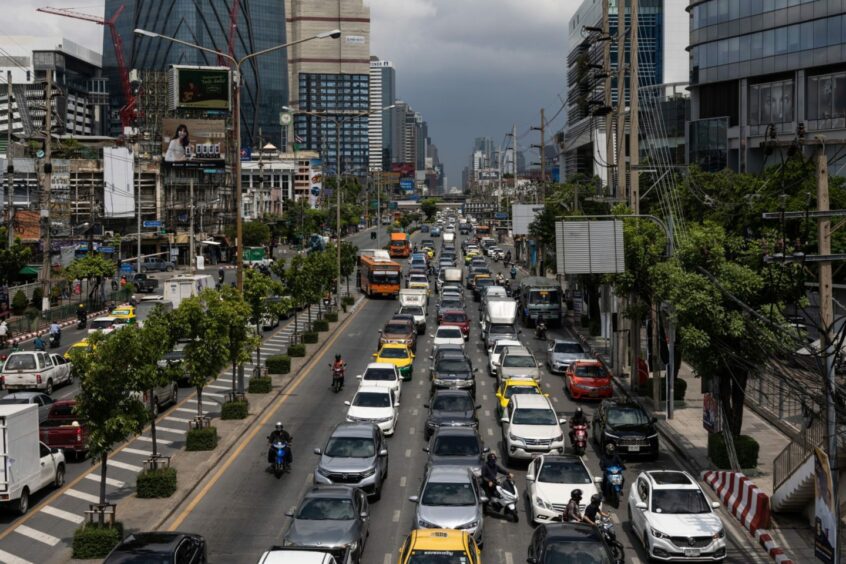
Thailand this month launched its first carbon credit exchange, marking a major step toward the country’s goal to achieve carbon neutrality by 2050 and combat climate change.
The new carbon market, called FTIX, will be operated by the Federation of Thai Industries, which comprises about 12,000 private companies across 45 sectors. Its supporting platform will allow firms and government agencies to buy and sell carbon credits and track their emissions on an online dashboard, said Somphote Ahunai, a vice chairman at the federation and chief executive officer of Energy Absolute Pcl.
The new platform will incorporate the government’s existing voluntary emission reduction program and follows a previous effort by the Electricity Generating Authority of Thailand (EGAT) and 10 of the nation’s biggest companies to set up a separate private market to trade credits over the counter.
“The carbon credit exchange will play a key part as the national trading mechanism to monitor and analyse our greenhouse gas (GHG) emission reduction,” Varawut Silpa-archa, minister of natural resources and environment, said at a conference.
The launch paves the way for Thailand to try to become a carbon-trading hub for Southeast Asia. Although it only allows domestic trading for now with the government’s T-VER program, the platform is expected to expand to include other international ones later.
FTIX joins existing carbon exchanges in other Asian markets including China and Singapore, which plans to launch futures trading as early as this year as companies look to hedge risks from greenhouse-gas emissions. Japan and Malaysia are planning similar exchanges.
Thailand is expected to see peak emissions in 2025 at 368 million metric tons of carbon dioxide equivalents, said Varawut. It aims to cut emissions by 40% by 2030, he said.
The goal, which will require changes in the energy and transport sectors, will be supported by Thailand’s growing embrace of electric vehicles. The government earlier this year allocated about 43 billion baht ($1.2 billion) through 2025 to promote the use of EVs as part of the effort.
Thailand made a pledge to achieve net zero by 2065 at last year’s United Nations climate summit, joining a global commitment to cap warming to less then 2 degrees Celsius above pre-industrial levels.
